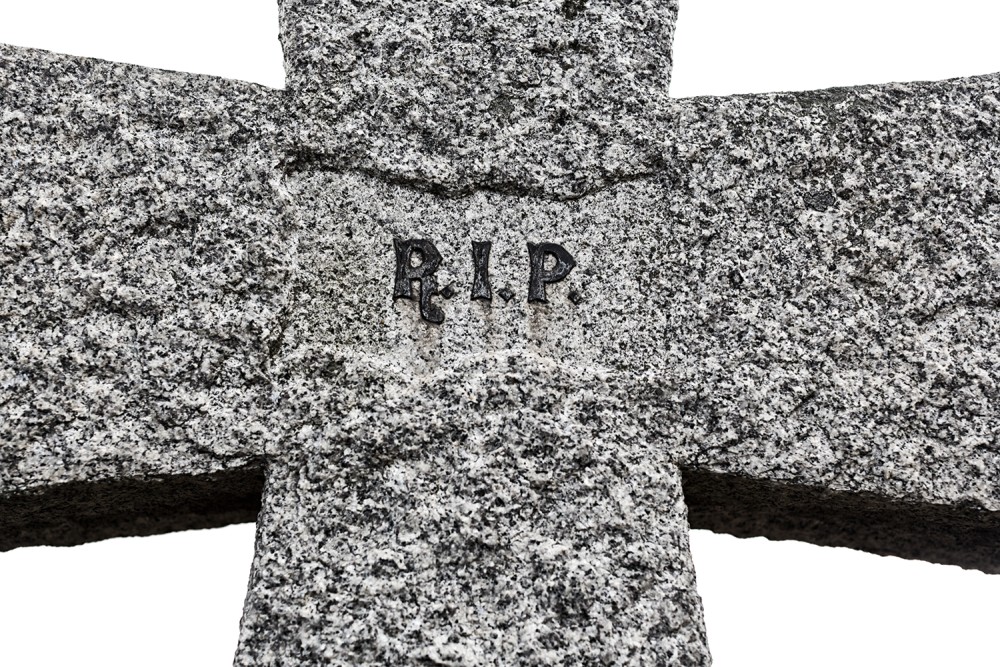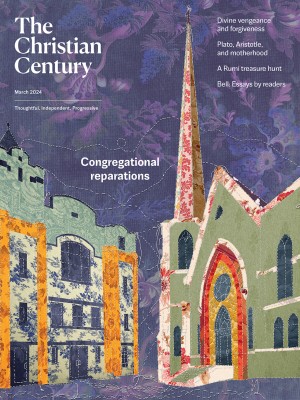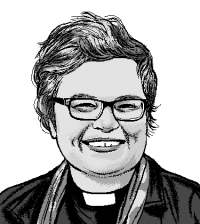Speaking of death
Christians have an opportunity to eschew euphemisms and talk honestly about mortality.

(Photo: RapidEye / iStock / Getty)
When my father died a couple of years ago, my family asked me to take the lead in organizing his funeral. I was happy to take this role: I am an experienced cleric used to working with funeral directors, and I have a strong understanding of the funeral process. What I’d never previously experienced—at least not from the point of view of a grieving person—is how readily those involved in the ministrations around a death speak in euphemisms. Perhaps it was a token of my grief, but I was annoyed by how many people couldn’t even say that my dad had died; most people, including the funeral director, said, repeatedly, that he’d “passed.”
Does it matter? At one level, no. The phrase “passed away” has been used to refer to death for 500 years. Still, it troubles me theologically. I fear that the prevalence of using passed as a way of speaking (or not speaking) of death indicates a society frightened by the finality of death, one that has opted for an overly spiritualized response to the last enemy.
Read our latest issue or browse back issues.
A common refrain in my clergy circles is about how, on visits to plan funeral services with the bereaved, the only person prepared to use the “D” word is the priest herself. The bereaved will typically resort to any number of euphemisms to avoid it. This is entirely understandable. Shock is a natural reaction to death and, as creatures of language, we may be inclined to retreat to clichés that seem to soften the blow.
Indeed, at one level, euphemisms are entirely comprehensible as strategies to avoid the things we struggle with most. As Voltaire noted, “One great use of words is to hide our thoughts.” This applies to any difficult aspect of life, not simply death. Terms like downsizing and rationalization have been used for decades in business settings to avoid speaking directly about job cuts. In almost every area of life that really matters or troubles us—from sex through to war—there are forms of words that have been found to smooth out what’s difficult.
If death is the greatest human fear, it is hardly surprising that most of us will find ways of avoiding talking about it. The sheer number of ways humans have of avoiding the “D” word is both a testament to our creativity and an indication of how much we fear death.
Yet I think one of the imperatives on us as Christians is to be as honest as we can about death. Priests in particular are called to help people to pray and prepare them for death. Ironically, in an age when Christians are often parodied as delusional fantasists, we in fact have something powerful to offer as people who model realism and honesty about death. And one way we do that is by avoiding euphemisms at the point of death. If euphemisms are deployed in part to soften the nature of something shocking and appalling, ironically they serve to draw greater attention to that which they are meant to conceal. By being carefully and humanely honest about the singular finality of death, both priests and laypeople may be key agents in helping the bereaved to come to terms with the simple fact that, in this life at least, their loved ones are gone.
I am not suggesting that Christians should be crass. I trust we will always be sensitive to death’s ability to strip any of us of our certainties. But the quiet acknowledgment of the final nature of death may be significant both pastorally and for mission. In being clear that death has a shocking finality about it, Christians—as people who are committed to resurrection and new life—may be better placed to speak the good news of Christ. One thing we should not be afraid of in our faith tradition is the bleak reality that God incarnate, Jesus Christ, actually died and died horribly. He did not fall asleep or pass over or, to quote George Eliot, “join the choir invisible.” He died, in a vile and appalling way.
Resurrection is predicated on death. This is a powerful message in an age and culture in which technology and market economics have created the illusion that life and growth are almost endless. Growth is taken to be always good—and to be fair, growth is often a sign of life. Yet Jesus invites us to remember that unless a kernel of wheat falls and dies it remains a single seed. Jesus himself models a way of living abundantly that is grounded in the unavoidable reality of death.
Increasingly I read stories of billionaires seeking to cheat death altogether. In a culture where medical technologies have extended life among the wealthy to unprecedented levels, Christianity retains a potent voice on the inescapability of death. Even more powerfully, the figure at the heart of the Christian faith, Jesus Christ, signals that a fulfilled and rich life is not by its nature dependent on its length. At a time when religious faith is often parodied as absurd, childish, and fantastical, there is a profound opportunity to speak to the privilege of individuals and societies that seek to isolate themselves from the facts of human existence.
I know that there is nothing much I can do, as an individual, about the use of passing as a euphemism for death. At the same time, I can think of no greater vocation as a person of faith than to speak honestly about death, trusting in that even deeper reality of God’s resurrection.







